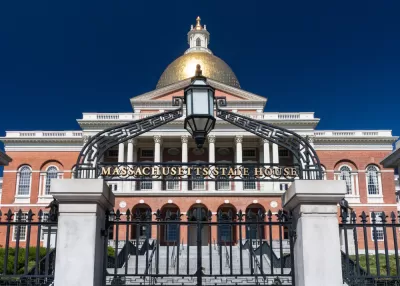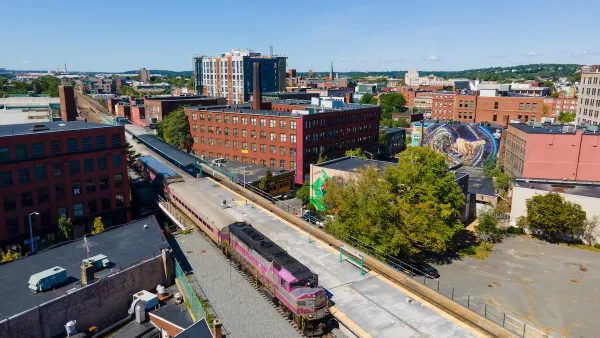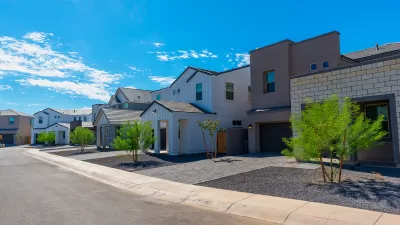Massachusetts is one of the states in the nation requiring local governments to make more space for multi-family housing. Not all local governments are willing to comply, however.

There are new penalties in Massachusetts failing to adhere to the MBTA Communities law, a statewide mandate for zoning that allows multi-family housing development by-right near transit stations.
“Municipalities that do not follow the MBTA Communities law […] will no longer be eligible for a new list of state funding opportunities until they are in compliance,” reports Tréa Lavery for Mass Live.
“The law was adopted in 2021 and requires cities and towns served by the transit agency have at least one zoning district “of reasonable size” where multi-family housing is allowed within a half-mile of a commuter rail, subway or bus station or ferry terminal, if applicable,” adds Lavery.
“Earlier this month, the town of Holden was sued by the Central Massachusetts Housing Alliance for saying it would not follow the law,” according to Lavery.
The news reflects a trend visible in other states, perhaps most notably in California, where state preemption of local control of zoning codes still requires stiff penalties to get local governments working on zoning reform.
More details on the penalties attached to the MBTA Communities law are found in the source article below. Lavery also reports that the state has awarded $2 million to fund technical assistance to communities working to comply with the law.
FULL STORY: Mass. adds new penalties for towns not following MBTA Communities zoning law

Maui's Vacation Rental Debate Turns Ugly
Verbal attacks, misinformation campaigns and fistfights plague a high-stakes debate to convert thousands of vacation rentals into long-term housing.

Planetizen Federal Action Tracker
A weekly monitor of how Trump’s orders and actions are impacting planners and planning in America.

Chicago’s Ghost Rails
Just beneath the surface of the modern city lie the remnants of its expansive early 20th-century streetcar system.

Bend, Oregon Zoning Reforms Prioritize Small-Scale Housing
The city altered its zoning code to allow multi-family housing and eliminated parking mandates citywide.

Amtrak Cutting Jobs, Funding to High-Speed Rail
The agency plans to cut 10 percent of its workforce and has confirmed it will not fund new high-speed rail projects.

LA Denies Basic Services to Unhoused Residents
The city has repeatedly failed to respond to requests for trash pickup at encampment sites, and eliminated a program that provided mobile showers and toilets.
Urban Design for Planners 1: Software Tools
This six-course series explores essential urban design concepts using open source software and equips planners with the tools they need to participate fully in the urban design process.
Planning for Universal Design
Learn the tools for implementing Universal Design in planning regulations.
planning NEXT
Appalachian Highlands Housing Partners
Mpact (founded as Rail~Volution)
City of Camden Redevelopment Agency
City of Astoria
City of Portland
City of Laramie





























